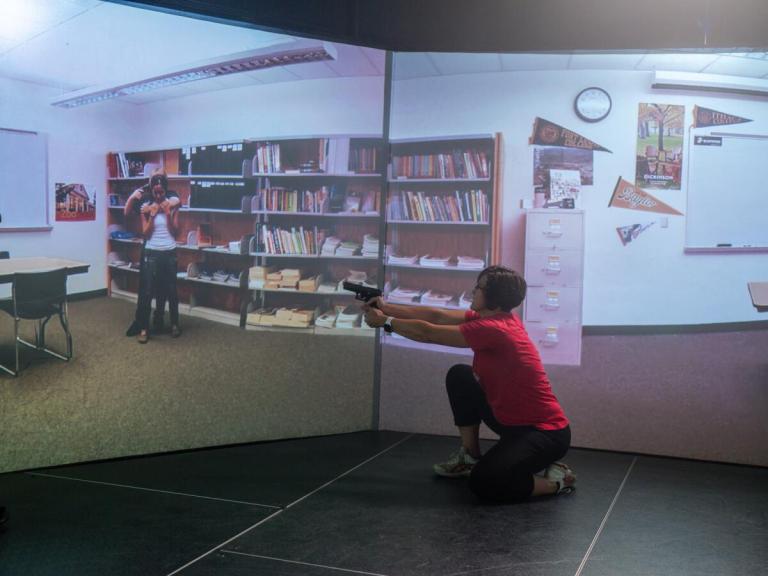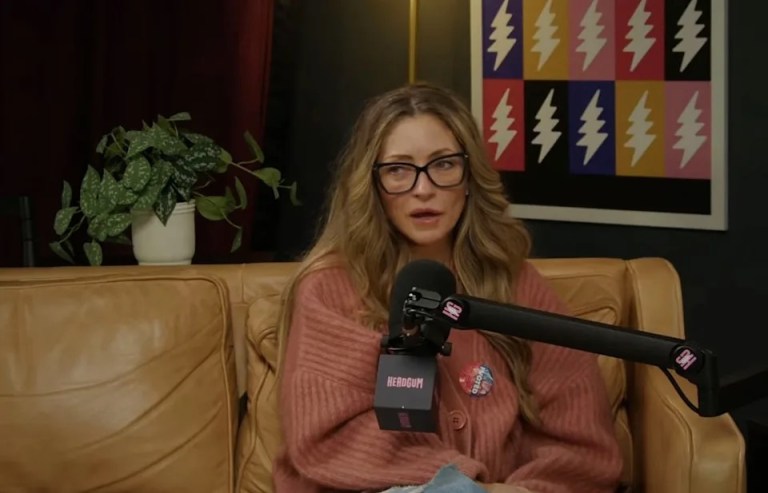
HS: My Story
I have to wear special undergarments that are not sexy in any matter, and I sleep in breathable, cotton pajamas.
By Kay Ocelly
In the summer of 1989, at 25, I was just an ordinary woman working and living with my fiancé. I had no history of acne, pimples, or other skin problems.
Then one day, everything changed.
That memorable day started out like any other. I showered, dressed, ate breakfast, and went to work. I noticed that the inside of my upper leg was a little sore, but thought nothing of it. As the day progressed, however, it became more painful. Finally, I decided to check it out in the bathroom at work. I found the culprit—a large, hardened bump—right where the elastic of my underwear touched my upper thigh. This is probably just an ingrown hair from shaving, I sighed.
I could not have been more wrong.
By evening, the bump had grown to the size of a quarter and become yet more painful. It didn’t look anything like a blister or a pimple that could be popped. It was a hard lump beneath the skin.
Uncertain what to do, I called my mom, who came right over. After appraising the lump, she advised me to call the doctor immediately.
The doctor examined me the following day and diagnosed me with an abscess that needed to be lanced and drained. There was nothing they could do to numb the area so I lied there on the table as the doctor literally cut my skin open. This was absolutely excruciating. It felt like they were extracting something from my flesh. I was sweating and crying, wishing for it to be over from minute one. After dressing the rather large wound, the doctor said he’d seen something similar before but did not know what had caused it.
Unfortunately, another lump showed up shortly after that first wound healed. I had to go back and have the same painful procedure on the new lump. After the doctor finished, he referred me to a dermatologist.
During the time I waited for my appointment with the dermatologist, two more lumps developed in the same area, on my other leg. The dermatologist, who was a very old gentleman, lanced both lumps. As I winced and cried during the procedure, he said, “Now, now, it’s not that bad.” Needless to say, I never went back to that specialist again.
Just when I thought things were finally back to normal, another lump showed up between my butt cheeks, about a quarter of an inch away from the anus. It hurt so much whether I was standing, sitting, or lying down. As soon as I showed it to her, my mom took me to one of those medical clinics open 24 hours. I lied on my stomach and bit down on a pillow to keep from screaming as they proceeded to cut open a 3-inch area on my butt. My body was shaking uncontrollably and I was sweating profusely as the doctor did his thing. For the next three days, I had to take hot baths to help draw out any further infection. Then I had to return to the doctor to have the packing removed.
The next specialist I went to diagnosed me with Hidradenitis Suppurativa (HS). Finally, “it” had a name, and, to my relief, it wasn’t contagious. I was also told that they didn’t know for sure what caused HS, and that there was no cure. All they could do was advise me not to wear tight clothing (no jeans, pantyhose, or bathing suits), and not to shave near the effected areas. They also said I should try to find cotton undergarments without elastic that could aggravate the area.
Since I wasn’t insured through my workplace, I had to pay out of pocket for everything. This put a huge burden on my finances in addition to the strain HS took on my overall health and wellbeing. In the midst of everything, my fiancé and I ended our relationship.
I still have trouble with HS. I’ve developed symptoms on one of my breasts and also under my armpits. I have learned to lance my own wounds. They heal well but the wounds frequently return in the exact same spots.
I have to wear special undergarments that are not sexy in any matter, and I sleep in breathable, cotton pajamas. When I swim, I wear a bathing suit that is larger and looser with a skirt or shorts attached to hide my scars and any unshaved areas. I can’t wear the popular jeans so many others wear, choosing safer, loose fitting jeans instead. I’ve stopped dating for the most part because I can’t imagine trying to explain HS to a prospective boyfriend. I don’t discuss HS with anyone if I can avoid it, and I don’t want anyone to see my wounds or scars. HS is a painful, expensive, and embarrassing disease.
My biggest hope is that some day during my lifetime, a cure or at least a safe and affordable treatment for HS will be discovered. In the meantime, I’ll settle for more widespread awareness of this life-altering condition and the people who suffer from it. ![]()











